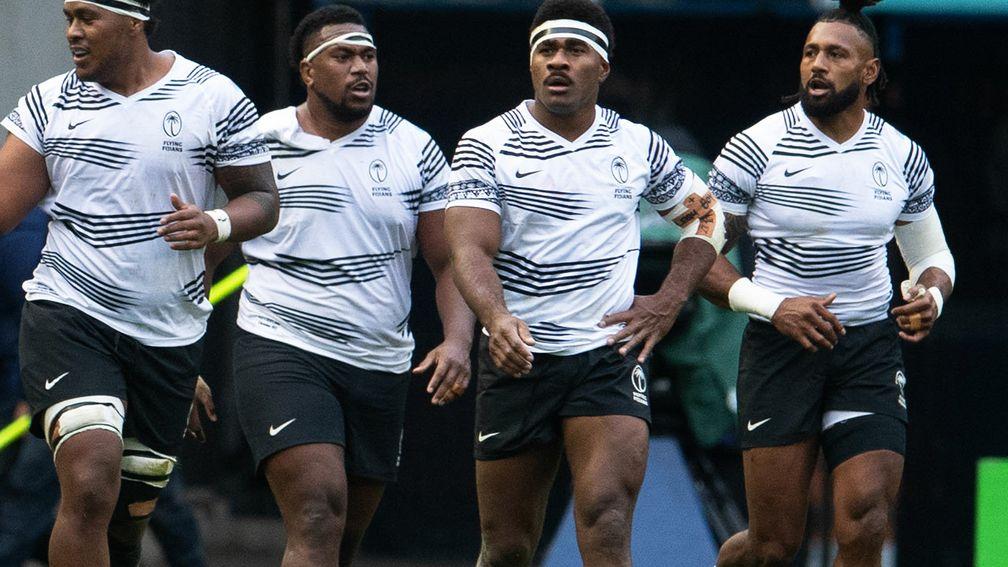New rules open the door for Pacific Island nations to realise their potential
The change to eligibility criteria means Tonga, Samoa and Fiji all have a chance of causing upsets at the World Cup

The tenth edition of the Rugby World Cup kicks off next month and among the storylines to follow is the improvement of the Pacific Island nations.
While South Africa, Scotland and others have also taken advantage, World Rugby’s decision to change its eligibility rules in 2021 has undoubtedly benefited Tonga, Samoa and Fiji, who have all traditionally lost players to Australia, New Zealand and other nations due to better opportunities.
Similar changes have revolutionised rugby league with the last two World Cups, when a number of Australia and New Zealand internationals opted to represent the country of their heritage, being arguably the best editions in the tournament's history.
Samoa reached the final of the last Rugby League World Cup and while they, Tonga and Fiji may have to wait to enjoy the same impact in the 15-man code, there are positive signs ahead of this autumn's tournament in France.
The expansion of Super Rugby franchises to the nations has also helped. Tonga and Samoa players make up the majority of the Moana Pasifika squad while Fiji are represented by the Drua. That has enhanced the opportunities for local players and they can only benefit from working alongside the influx of previously unavailable talent at international level.
Tonga and Samoa have both taken advantage by selecting members of New Zealand's 2015 World Cup-winning squad for this year's edition. Malakai Fekitoa is set to play for Tonga alongside fellow former All Blacks Charles Piutau and George Moala, while 38-cap Wallaby Adam Coleman should start in the second row.
For Samoa, prop Charlie Faumuina, who came off the bench for New Zealand in the 2015 final, will feature alongside fellow ex-Kiwi internationals Steve Luatua and Lima Sopoaga, and Christian Leali’ifano is another newcomer after previously representing Australia.
Neighbours Fiji have even overlooked some big names but have the best chance of progressing to the knockout stage after recording bonus-point victories in all three of their matches in this summer's Pacific Nations Cup.
Intriguingly, their World Cup group is almost identical to four years ago and with real uncertainty surrounding opening opponents Wales and Australia, beating either will prime them for a bruising encounter against Georgia before their final Pool C match with Portugal.
Fiji lost to Uruguay in Japan in 2019 but they are a far more professional outfit now with quality running throughout their squad and, after impressing in last week's 34-17 defeat to France, they should test an underperforming England on Saturday afternoon. The Red Rose's risk-averse tactics may exploit Fiji's set-piece issues but the islanders will be all over them if given the chance to move the ball.
There is every chance they could rate a handicap bet at Twickenham and keeping England within touch would only reinforce the feeling that they can make the knockout phase at next month's World Cup.
Samoa, who famously beat Wales in both 1991 and 1999, are also in action on Saturday against a much-changed Ireland side. And they will no doubt fancy themselves to match Andy Farrell's fringe stars on neutral territory in Bayonne.
Despite double-figure odds to qualify, their new-found depth means Argentina, England and Japan will not relish facing them in Pool D, while Tonga will expect to make life tough for Pool B rivals South Africa, Ireland and Scotland.
Rugby league's own eligibility changes have proved seismic, closing the gap between the top-tier nations and the rest by allowing players to represent the county of their heritage even if they had already performed at the top level for Australia, England or New Zealand.
Tonga, Samoa and Fiji have always produced world-beating talent, as demonstrated in the rugby sevens arena, but a lack of organisation both on and off the field, often due to a dearth of domestic infrastructure, has hurt them in the 15-man game.
However, the change in guidelines and Super Rugby's expansion has ushered in a new level of professionalism and a successful Saturday could signal the dawn of something truly special over the next two months.
Sign up to emails from Racing Post Sport and get all the latest news and tips
Today's top sports betting stories
Follow us on Twitter @racingpostsport
Published on inOpinion
Last updated
- Mark Langdon: Premier League rollercoaster leaves me sick
- Patrick Madden: Joe Schmidt's revolution should ensure the Lions won't have it all their own way Down Under
- Simon Giles: How Chelsea have kept moving in the right direction
- Joe Casey: How the final league Merseyside derby at Goodison Park could shape up
- James Milton: Rooney and Lampard struggling to find golden touch as managers
- Mark Langdon: Premier League rollercoaster leaves me sick
- Patrick Madden: Joe Schmidt's revolution should ensure the Lions won't have it all their own way Down Under
- Simon Giles: How Chelsea have kept moving in the right direction
- Joe Casey: How the final league Merseyside derby at Goodison Park could shape up
- James Milton: Rooney and Lampard struggling to find golden touch as managers